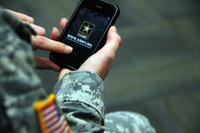-
Report: U.S. companies should consider counter-hacking Chinese hackers
A group studying how the United States should respond to the sustained campaign of cyberattacks conducted by Chinese government hackers against U.S. companies, said the United States should seriously consider a campaign of retaliatory cyberattacks against the hackers.
-
-
U.S. to help protect private companies from malicious cyberattacks
The U.S. government said it will help protect private companies from cyber attacks. DHS secretary Janet Napolitano said a system is being developed which will monitor Internet traffic directed to critical infrastructure businesses and block attacks on software programs.
-
-
Panel's draft bill shields DHS funds
A house panel introduced a bill last week that will protect DHS from budget cuts facing other domestic agencies under the house’s budget plan. This will allow the department to hire 1,600 new agents at Customs and Border Patrol agency, replace cuts to local and state governments, boost spending on cybersecurity, and abandon cuts to the Coast Guard.
-
-
Cybersecurity framework for critical infrastructure: analysis of initial comments
On 12 February 2013 President Obama issued the “Improving Critical Infrastructure Cybersecurity” executive order, which called for the National Institute of Standards and Technology (NIST) to work with industry to develop a voluntary framework to reduce cybersecurity risks to the nation’s critical infrastructure, which includes power, water, communication, and other critical systems.
-
-
Obama administration shifting cybersecurity legislative strategy

The Obama administration’s has shifted its cybersecurity legislative strategy. Rather than emphasize DHS-monitored regulations – an approach which stalled in Congress last summer because of Republican opposition — the administration is focusing on getting Congress to help promote the voluntary adoption by industry of standards being developed by the National Institute of Standards and Technology (NIST) following a February 2013 executive order signed by President Obama.
-
-
New software protects networked control systems from cyber attacks
Researchers have developed a software algorithm that detects and isolates cyber-attacks on networked control systems — which are used to coordinate transportation, power, and other infrastructure across the United States.
-
-
Wave of cyberattacks targets American energy companies

A new wave of cyberattacks has been hitting American corporations, and federal officials, say the attackers, who reside somewhere in the Middle East, are trying to sabotage these corporations. The majority of the targets have been energy companies, and the attacks are trying to take control of company’s processing systems.
-
-
Small, medium businesses suffer record levels of cyber attacks
More small businesses than ever are facing the threat of losing confidential information through cyberattacks, according to research published today by the Department for Business, Innovation and Skills (BIS).
The 2013 Information Security Breaches Survey has shown that 87 percent of small businesses across all sectors of the U.K. economy experienced a breach in the last year. This is up more than 10 percent and cost small businesses up to 6 percent of their turnover, when they could protect themselves for far less.
-
-
U.S.: China orchestrating broad cyberattack campaign against U.S.

The Obama administration accused China’s military of orchestrating a campaign of cyberattacks against American government computer systems and defense contractors for the purpose of identifying “military capabilities that could be exploited during a crisis.” Cyber experts estimate that about 90 percent of all cyberattacks in the United States originate in China, but these estimates have typically been offered by private-sector experts. The Pentagon’s annual report to Congress, released Monday, is the first government document specifically and explicitly to assert that the People’s Liberation Army (PLA) is behind a sustained, systematic campaign of cyberattacks on the United States in an effort to gain a strategic advantage over the United States. The report also pointedly notes that Chinese investments in U.S. companies aim to help this cyberattacks campaign.
-
-
McCaul to draft cybersecurity bill
House Homeland Security chairman Michael McCaul (R-Texas) said he was drafting his own cybersecurity bill, which will define the role of DHS in sharing information with private companies about cyber threats. McCaul hopes to agree on a compromise with the White House, which threatened to veto the bill.
-
-
U.S., China in high-level military talks
Representatives of China and the United States met on Monday for the highest-level military talks between the two counties in almost two years. In the meeting, a senior Chinese general pledged to work with the United States on cybersecurity because the effects of a major cyber attack “may be as serious as a nuclear bomb.”
-
-
White House threatens to veto House cybersecurity bill
The White House on Tuesday threatened to veto the cybersecurity bill drafted by the House of Representatives. The house is expected to vote on the bill later this week. The cybersecurity bill died in the Senate last August after the White House said it would veto the bill.
-
-
U.S. Army weak on mobile devices security

The U.S. Army has developed a mobile strategy to guide its adoption of mobile devices. A Department of Defense audit found that the Army has been lax in developing security guidelines for the use of the thousands of mobile devices now in service, and that these already-weak and insufficient security guidelines are inconsistently implemented.
-
-
China, U.S. to team up on cybersecurity
Secretary of State John Kerry announced on Saturday that China and the United States will join forces to start a working group on cybersecurity.Kerry’s announcement follows several attempts for a dialogue on the topic between the two sides.
-
-
Proposed budget shows DHS will have to do with less
The administration’s proposed 2013 budget shows that DHS will have to do with less: the department $39 billion is $625 million less than the department’s2012 budget, and, in addition, the department has committed to save an additional $1.3 billion by reducing administrative costs. Among the big-ticket items in the new budget: $714 million for a state-of-the-art animal disease lab; $494 million to fund research and development in cybersecurity, explosives detection, and chemical/biological response systems; and $221 million for 1,600 additional Border Patrol agents.
-
- All
- Regional
- Water
- Biometrics
- Borders/Immig
- Business
- Cybersecurity
- Detection
- Disasters
- Government
- Infrastructure
- International
- Public health
- Public Safety
- Communication interoperabillity
- Emergency services
- Emergency medical services
- Fire
- First response
- IEDs
- Law Enforcement
- Law Enforcement Technology
- Military technology
- Nonlethal weapons
- Nuclear weapons
- Personal protection equipment
- Police
- Notification /alert systems
- Situational awareness
- Weapons systems
- Sci-Tech
- Sector Reports
- Surveillance
- Transportation
Advertising & Marketing: advertise@newswirepubs.com
Editorial: editor@newswirepubs.com
General: info@newswirepubs.com
2010-2011 © News Wire Publications, LLC News Wire Publications, LLC
220 Old Country Road | Suite 200 | Mineola | New York | 11501
Permissions and Policies
Editorial: editor@newswirepubs.com
General: info@newswirepubs.com
2010-2011 © News Wire Publications, LLC News Wire Publications, LLC
220 Old Country Road | Suite 200 | Mineola | New York | 11501
Permissions and Policies
